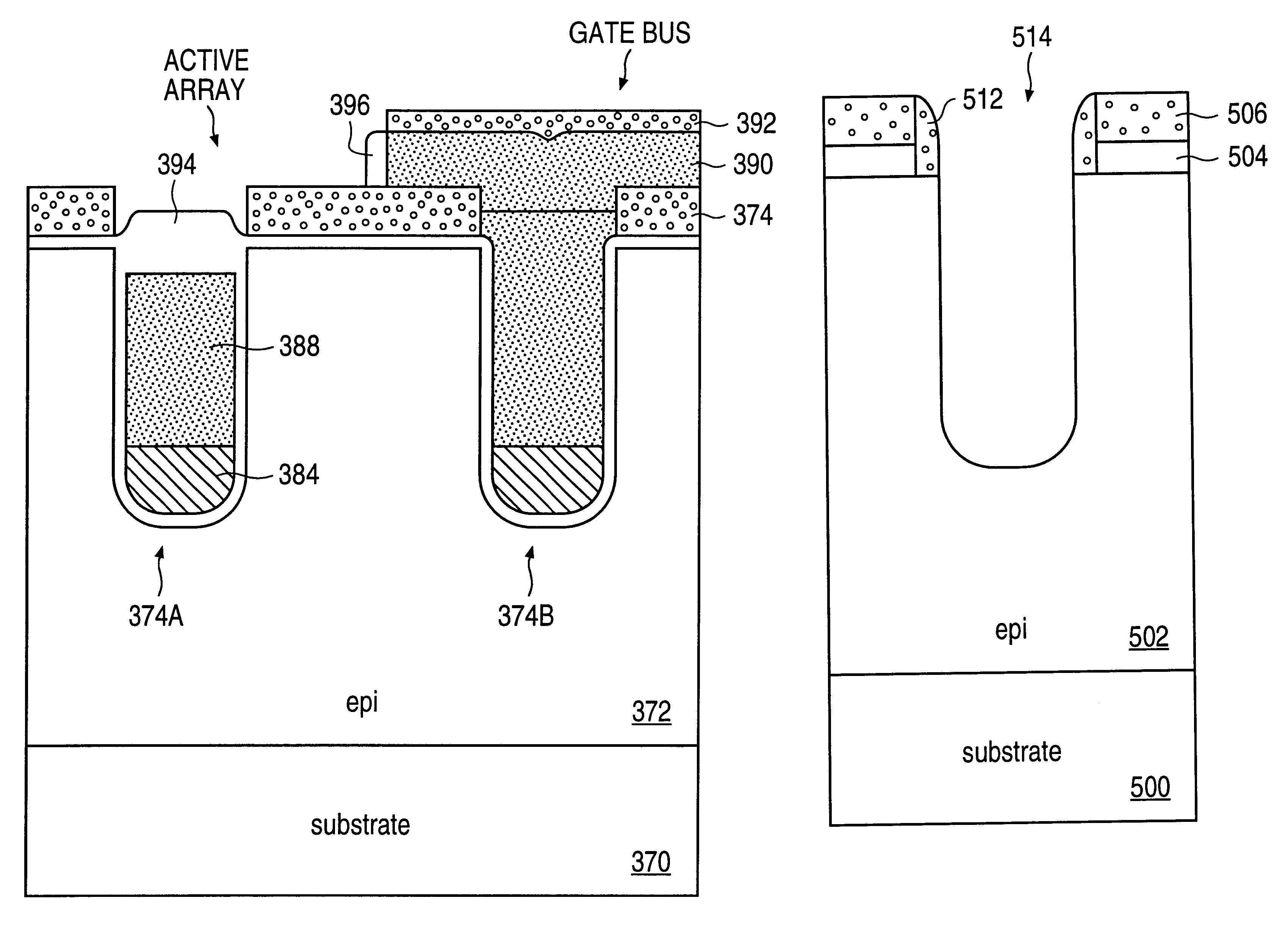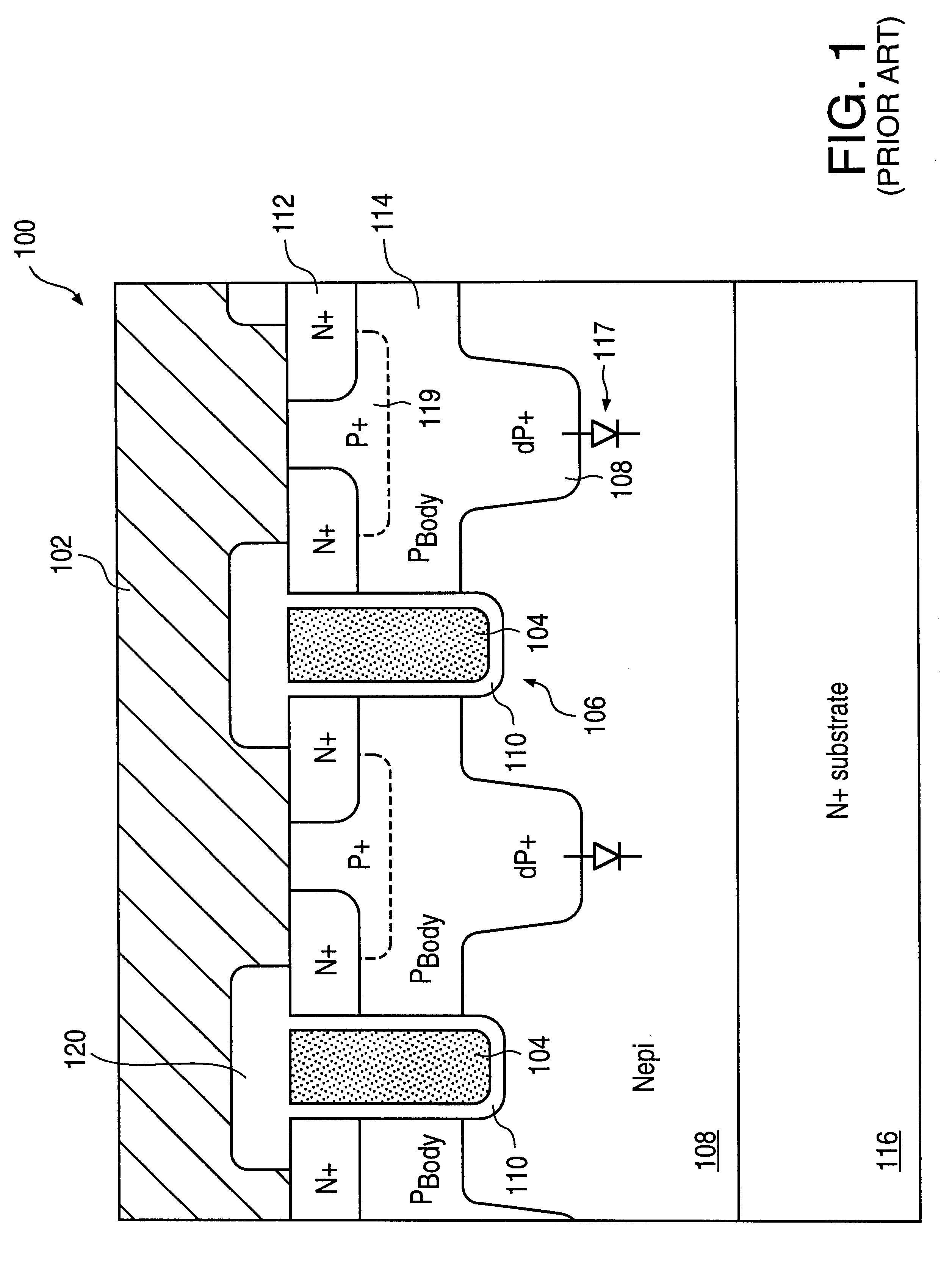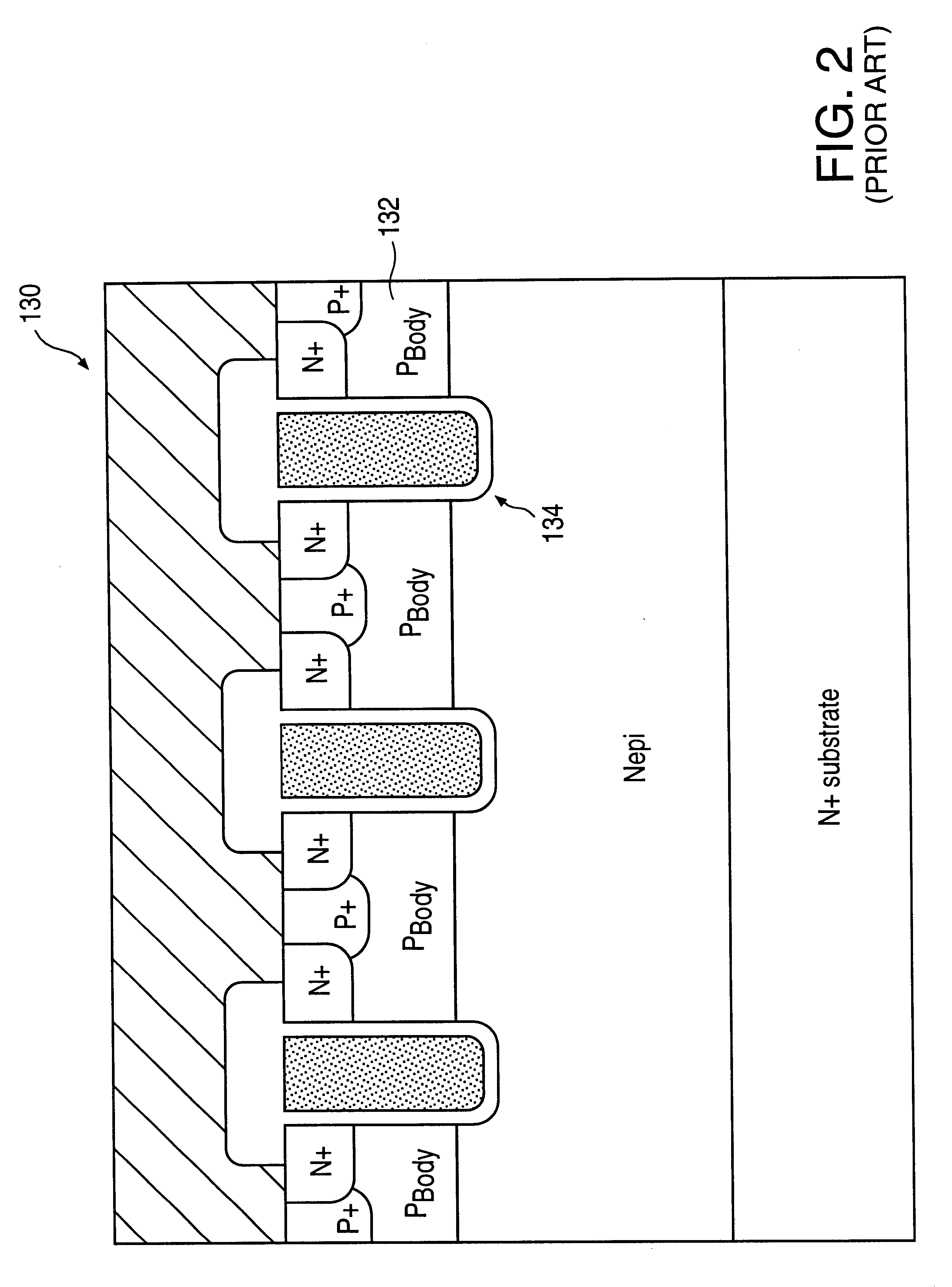Process of manufacturing Trench gate semiconductor device having gate oxide layer with multiple thicknesses
- Summary
- Abstract
- Description
- Claims
- Application Information
AI Technical Summary
Benefits of technology
Problems solved by technology
Method used
Image
Examples
Embodiment Construction
The problems associated with interactions between the gate and the drain of a MOSFET can be solved in part by reducing the coupling capacitance between them. In accordance with this invention, this is done by thickening the gate oxide layer at the bottom of the trench. FIGS. 11-27 show various structures and sequences for forming a thick gate oxide on the bottom of the trench.
FIG. 11A shows an epitaxial ("epi") layer 242 grown on a substrate 240. A trench 250 is formed in epi layer 242. A oate oxide layer 244 lines the walls of trench 250, and a thick portion 246 of gate oxide layer 244 is located at the bottom of trench 250. Trench 250 is filled with polysilicon 248. Note that there is no oxide layer on top of polysilicon 248. The arrangement of FIG. 11A could be an intermediate structure; an oxide layer could be formed on top of polysilicon 248 at a later stage of the process. Polysilicon 248 is typically doped to a heavy doping concentration. It may be formed with a top surface s...
PUM
 Login to View More
Login to View More Abstract
Description
Claims
Application Information
 Login to View More
Login to View More - R&D
- Intellectual Property
- Life Sciences
- Materials
- Tech Scout
- Unparalleled Data Quality
- Higher Quality Content
- 60% Fewer Hallucinations
Browse by: Latest US Patents, China's latest patents, Technical Efficacy Thesaurus, Application Domain, Technology Topic, Popular Technical Reports.
© 2025 PatSnap. All rights reserved.Legal|Privacy policy|Modern Slavery Act Transparency Statement|Sitemap|About US| Contact US: help@patsnap.com



